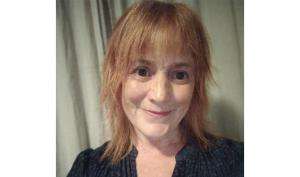‘We are professional peacemakers’

Published by Professional Social Work magazine, 3 March, 2022
Modern border conflict has become a universal term, a threat that invades our world and causes people to reconsider loyalties and divisions.
Social work in international formations holds a deep humanitarian spirit, listening to the needs of those within communities in environmental crisis, cultural conflict or at risk of subordination with a universal mantra of social solidarity.
I add my voice to the many social workers in practice, education and research supporting our Ukrainian and Russian colleagues within their home countries and across the world at this time of human discord. The critical question is how we translate this systemic awareness into tangible therapeutic response.
For each of us, identification of external conflict requires addressing the challenges of market forces, neo-liberal agendas, and geo-political interests that compete against human rights.
Looking at social work is a profession of peace and conflict resolution illuminates our potential contribution in response to individual and collective need.
My personal vision of social work in conflict resolution is influenced by three experiences: working for many years as a UK statutory social worker in family and community practice; leading action research projects in Russia in contexts of critical community need, and developing a more generic research interest in youth trauma due to political violence.
Within the latter, I co-lead a collaborative community intervention with local social workers and psychologists supporting young people in contexts of military siege in Palestine.
At an individual level
In my view, as statutory social workers, we are professional peacemakers. Our practice has always sought to acknowledge and resolve conflict carried in individuals, families and communities. Our ‘assessment of need’ is a deep listening to the rumblings that people carry in their hearts and souls through experiences of socio-economic and political trauma.
In the west, our profession is deeply influenced by critical systemic theory and holistic therapy. I attribute the term ‘therapy’ to social work in its deep emotional listening stance. It guides us to respond to the individual, family and community with a precise awareness of how conflict impacts on physical, emotional and spiritual aspects of personhood.
Within a conflict zone, social work requires a deeper psycho-intuitive lens as therapeutic response to the disorders emerging in the ever-changing environment.
This is a complex dynamic to define. In The Use of Self in social work practice, Andrew Cooper highlights the complexity and subtlety of the “inter-subjective field” surrounding the displaced child or young person. In circumstances of conflict this requires understanding how intuition and resilience co-exist with the shadows of grief, trauma and despair.
The search for holistic equilibrium will, clearly, be a different balancing act for each person in reaction to their environment of conflict. When sense of belonging and personal harmony is affected by external conflict, defining aspects of physical, emotional and spiritual identity guides the practitioner to understand precisely how traumatic harm or pain affects the individual.
These points of human engagement are critical, defined by Daniel Goleman in Emotional Intelligence as emotional “literacy” in terms of understanding self and self-resilience, as a point of regulation in relation to others and human sustainability.
At a collective level
A systemic response seeks to acknowledge intrinsic, organic sources of healing and sustainability in ancestral and cultural landscapes.
Contemporary notions of human, socio-political and environmental justice can guide social workers to promote the essential energy of partnership to combat deliberate tactics of siege or conflict.
The focus on collaboration through transcultural engagement with local people in shared enquiries into how to endure and build resilience challenges the pervasive nature of collective trauma.
Through use of community traditions and representation, the narrative of the community might be realised as expression of its pain and nurture of its unique capacity to heal and sustain.
For action research interventions in a war zone, this shifts the focus from the external source of conflict to promote the concept of a natural trauma and resilience rhythm in the life-cycle.
Lena Dominelli in Social work in a globalising world says this understanding aids definition of the cycle of conflict, division and peace-making which emerges in local, regional and transcultural communities and which organisational social work seeks to address.
It recognises the need for human ‘affiliation’ when people face a complex or unknown threat or socio-environmental change.
The profession of social work, therefore, promotes social action to protect human and eco environments within a greater vision of world peace.
Rather than the focus on division and ‘disunity’, a natural form of collaboration and participation across cultures becomes a dynamic rhythm of expansive thought and human interconnectedness.
Dr Joy Bevan is a social worker and action researcher in international humanitarian education and therapy. She is a senior lecturer at the University of Gloucestershire, project lead of the Palestine Community Relief Project and former chair of BASW’s Russia special interest group
PSW and BASW are keen to give voice to social workers during the Ukraine war. To find out how you can contribute your thoughts, feelings and reflections click here
